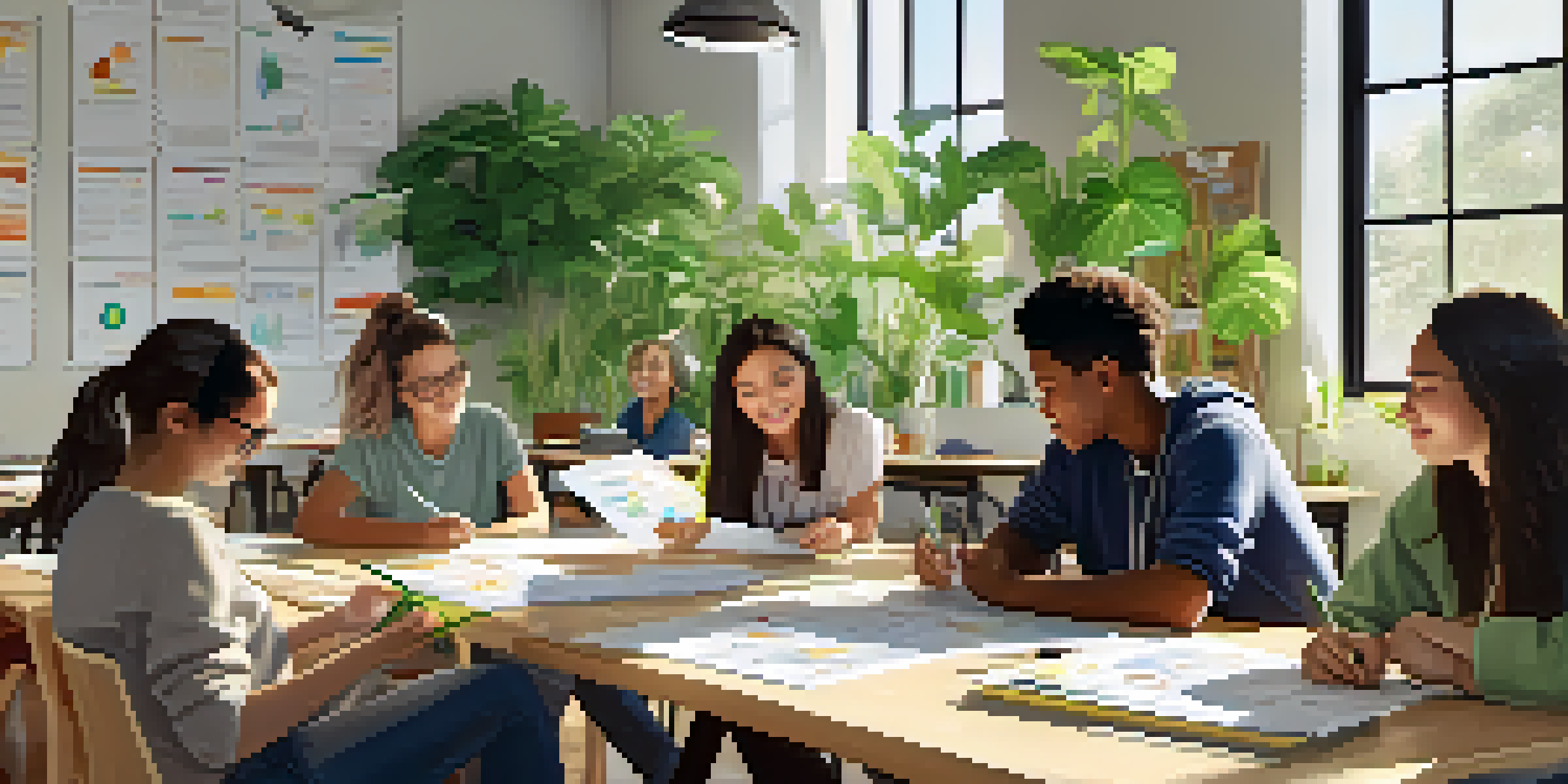The Benefits of Peer Learning in Sustainability Education

Understanding Peer Learning in Sustainability Education
Peer learning is an educational approach where individuals learn from one another, sharing knowledge and experiences. In sustainability education, this method fosters collaboration and critical thinking among students. By engaging in discussions and activities together, learners can explore complex sustainability concepts in a supportive environment.
Enhancing Critical Thinking Skills Through Collaboration
One of the standout benefits of peer learning is its ability to enhance critical thinking skills. When students collaborate on sustainability projects, they’re encouraged to evaluate different perspectives and challenge assumptions. This dynamic interaction not only deepens their understanding but also prepares them for real-world problem-solving.
Peer Learning Enhances Critical Thinking
Collaborative projects in sustainability education encourage students to evaluate different perspectives, fostering deeper understanding and real-world problem-solving.
Fostering a Sense of Community and Belonging
Peer learning creates a sense of community among students, which is particularly important in sustainability education. When learners feel connected to their peers, they're more likely to engage actively in discussions and share their insights. This sense of belonging can boost motivation and commitment to sustainability initiatives.
Encouraging Engagement and Active Participation
Unlike traditional learning methods, peer learning encourages active participation from all involved. Students are not just passive recipients of information; they are actively contributing to the learning process. This engagement is vital in sustainability education, where students can apply their knowledge in practical ways, such as through group projects.
Community Boosts Engagement and Motivation
A sense of belonging among peers in sustainability education motivates students to actively participate and share insights.
Diverse Perspectives Lead to Innovative Solutions
Sustainability challenges are complex, often requiring diverse perspectives for effective solutions. Peer learning allows students to share their unique viewpoints, leading to innovative ideas and approaches. By collaborating with one another, students can tackle sustainability issues more creatively and effectively.
Building Communication Skills Through Dialogue
Effective communication is crucial in sustainability education, and peer learning helps students develop this skill. Through discussions and group work, learners practice articulating their thoughts and listening to others. These communication skills are not only essential in academic settings but also in professional environments focused on sustainability.
Real-World Skills Through Collaboration
Working together on projects equips students with practical skills that are essential for future careers in sustainability.
Empowering Students to Take Ownership of Their Learning
In a peer learning environment, students often take more ownership of their educational journey. They are encouraged to set goals, share responsibilities, and reflect on their progress. This empowerment is particularly beneficial in sustainability education, where students can see the direct impact of their contributions on the community and environment.
Real-World Applications and Skill Development
Finally, peer learning in sustainability education promotes real-world applications of knowledge. When students work together on projects, they develop practical skills that are highly valued in the job market. This hands-on experience not only enhances their understanding of sustainability but also prepares them for future careers in the field.